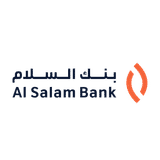
Al Salam Bank: A Pioneering Force in Islamic Banking
Summary
This article explores Al Salam Bank's position as a leading force in the Islamic banking industry, its digital-first approach to banking, and its commitment to customer-centric services. The bank's financial standing and future prospects are also examined.Established in 2006, Al Salam Bank B.S.C has quickly risen to prominence as one of the fastest-growing banks in the Kingdom of Bahrain and a leading force in the Islamic banking industry. With a market cap of over 5 billion, the bank's robust financial standing is a testament to its aggressive growth strategy and effective risk mitigation.
Al Salam Bank's commitment to digital-first banking sets it apart from its competitors. Recognizing the modern-day needs of its clientele, the bank has adopted a digital-first mindset, harnessing data-backed insights and advanced technology to deliver curated financial solutions. Its range of innovative Shari’a-compliant financial products and services are made accessible through its extensive network of branches and ATMs.
At the heart of Al Salam Bank's operations is its commitment to customer-centric services. The bank prides itself on nurturing client relationships and humanizing the customer journey through personalization, convenience, and efficiency. Its solution-oriented philosophy ensures that clients' financial needs are at the center of all its operations.
Despite the bank's impressive growth and commitment to customer-centric services, the future of Al Salam Bank is seen as neutral. While its digital-first approach and robust financial standing are commendable, it's important for potential investors to consider the broader economic and market conditions before making an investment decision.
Given the current circumstances, potential investors may want to adopt a wait-and-see approach, monitoring the bank's performance and the market conditions before deciding to buy, sell, or hold the instrument.



